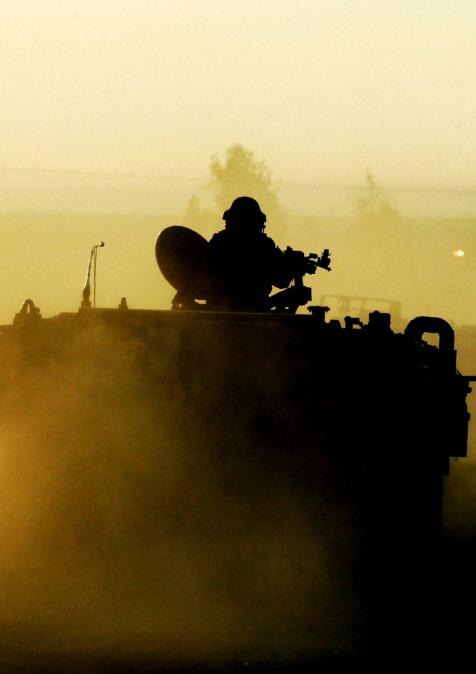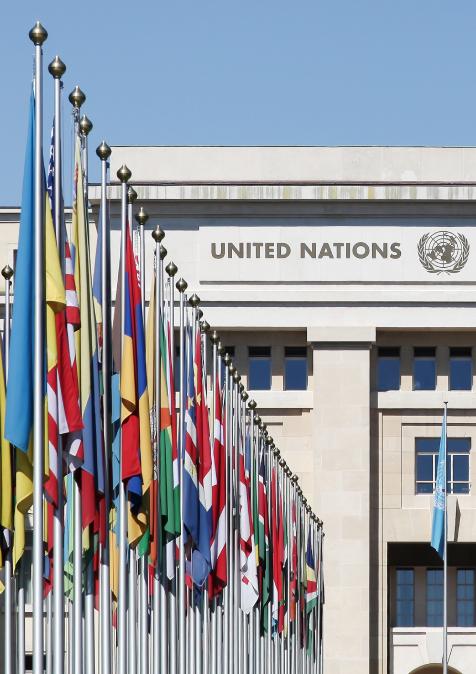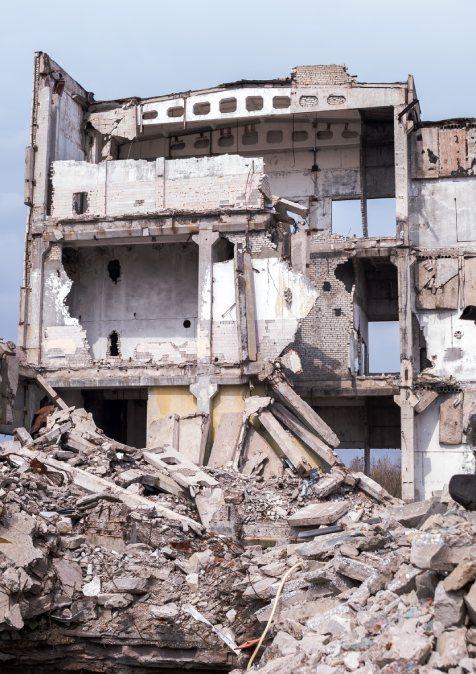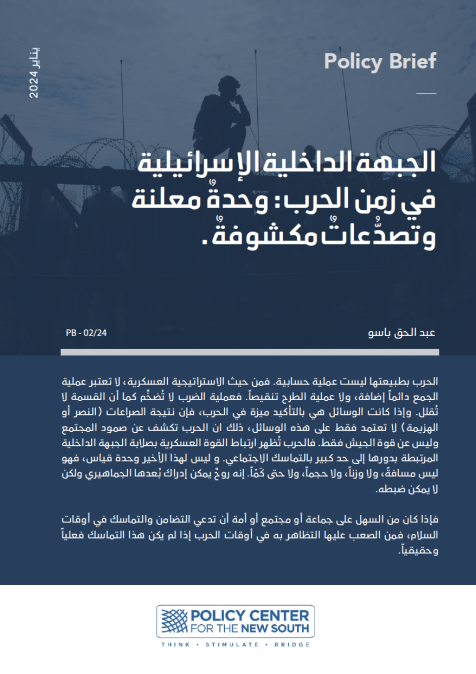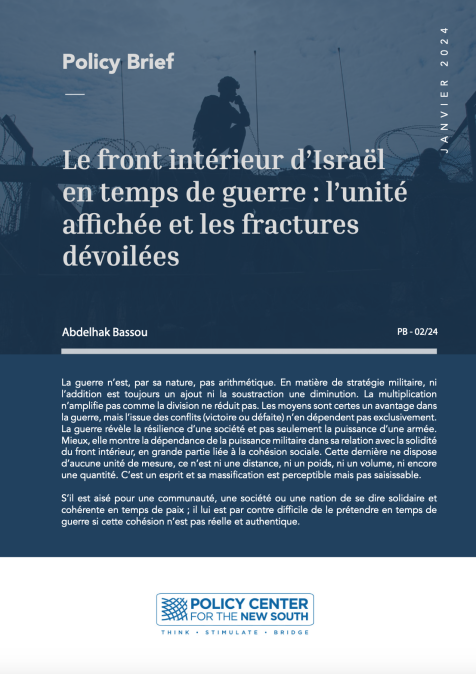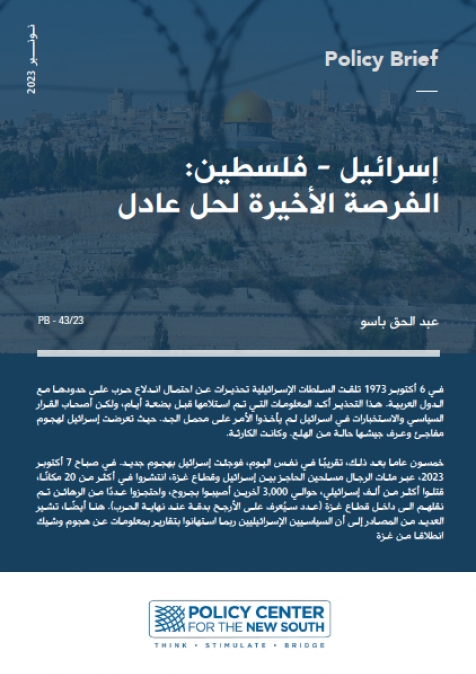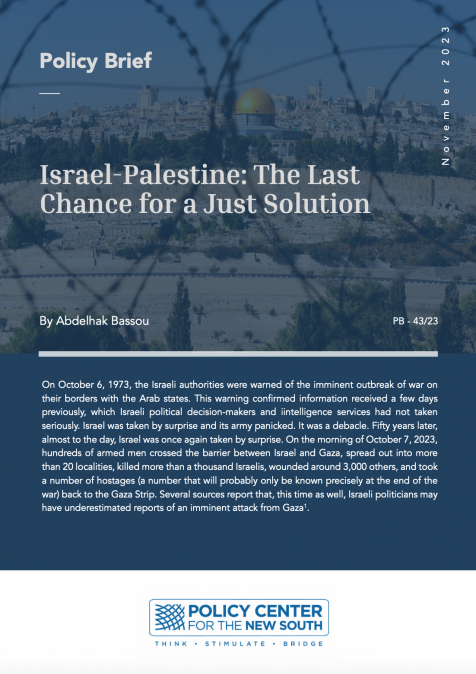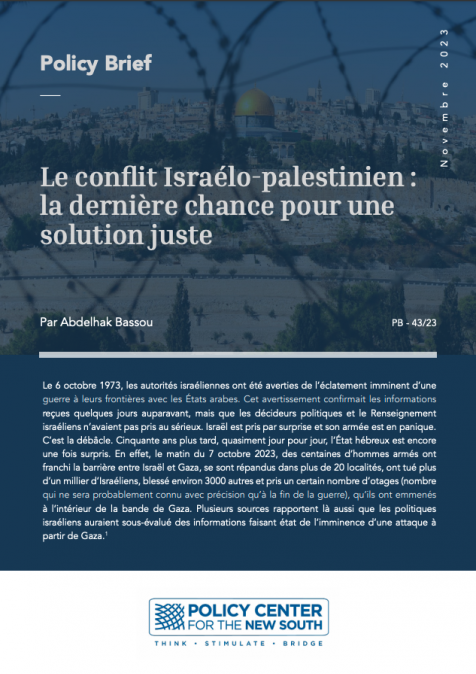Publications /
Opinion
On November 13, 1974 (YouTube, Nov 14), Yassir Arafat appeared in front of the United Nations General Assembly. He reminded his audience and the world that, “today I have come bearing an olive branch and a freedom fighter’s gun. Do not let the olive branch fall from my hand.” Almost half a century has passed since then, and Arafat as well, and there is still no olive branch for the Palestinians, only the gun.
Before the current Israel-Gaza war, noted the respected Foreign Affairs (October 25, 2023), “Gaza’s leaders were deeply unpopular—but an Israeli crackdown would change it.” Today the future is frozen, hope is paralyzed, only missiles and ammunition are alive. In the past, European students, revolutionary minded, some anarchists, others fascinated by Karl Marx or Frantz Fanon, were not really moved by the repression and suffering of the Palestinian people. Instead they admired Ernesto ‘Che’ Guevara, the revolutionaries’ revolutionary, the secretive alter ego of Fidel Castro, with whom, in 1959, Guevara liberated Cuba, his charm forever adored by global rebels, even more so after his assassination by CIA operatives in Bolivia on October 9, 1967. Che Guevara’s photo, black military beret with red star included, appeared on thousands of posters whenever the ‘revolucion’ marched through Paris, Athens, Madrid or Berlin, shouting the name of another admired hero, Ho Chi Minh, the skinny, revolutionary leader of North Vietnam, whose nation of 18 million challenged the military power of the U.S. for a decade. At the end, the communist freedom fighters were hailed even by U.S. college students, who applauded when the last U.S. helicopter escaped the U.S. embassy in Saigon, the capital of South Vietnam, on April 30, 1975, because they escaped military service and hell in Indochina (History Channel, July 6, 2010). Ho Chi Minh, a former dishwasher, who died some years before his nation triumphed against the Pentagon’s power, turned into “one of the most striking, complex and enigmatic leaders in the communist world” (Ho Chi Minh, 50 years of revolution, Studies in Comparative Communism, July/October 1968).
A year before Zionist Jewish settlers in Palestine declared the birth of the state of modern Israel, Mahatma Gandhi, an Indian Hindu, celebrated in 1947 the defeat of British colonialism, without violence or the power of guns. Gandhi, “a frail man with a will of iron” (National Geographic, September 27, 2019), suffered for his resistance but never abandoned his peaceful posture. Even now, he is considered “one of the most revered figures of modern history” (National Geographic). Ghandi spent the first decades of the last century in South Africa, already provoking the British with his disobedience. Another rebel in South Africa, Nelson Mandela, tried to follow the Hindu’s philosophy of non-violent civil disobedience, in a challenge to the apartheid system. The African rebel tried non-violent opposition, but when progress was not noticeable and the white rulers escalated suppression of the black population, Mandela, impatient and frustrated, turned to violence, such as sabotage of rail connections or power stations.
‘I Am Ready to Die’
Eventually Mandela was arrested, convicted, and threatened with the death penalty. In 1964, the accused stated in court (BBC, December, 7, 2013), just before sentencing: “I have cherished the ideal of a democratic and free society in which all persons live together in harmony and with equal opportunities. It is an idea for which I hope to live for and see realized. But my Lord, if it needs to be it is an ideal for which I am prepared to die.” The African saint survived 27 years, many in solitary confinement, and once released he did not seek revenge or armed reprisal, but hugged his oppressors and forgave them their sins.
Shifting from passive resistance to violent rebellion could make sense if the destructive force displayed will likely defeat a greater evil. The assassination of Nazi guards in concentration camps to save the lives of Jewish inmates could be justified without debating morality and ethics The suffering of the Gaza population, over 75 years, may be one reason for the Palestinian attack, but on the basis of which logical assumption was it planned and carried out? “Enough is enough,” declared Mohammed Deif, the military boss of Hamas (Islamic Resistance Movement), a leader rarely seen in public, in a video posted moments after the start of the October 7 attack. Too often Arab nations, Palestine as well, have abandoned reason and pragmatism for fanatism, emotionalism, and fundamentalism, while missing out on rational reflection and measured response. Mahmoud Abbas “bet on the international community believing that it would force Israel to withdraw from the occupied territories to give the Palestinians a state,” said Ubai Al Aboundi, director of the Bisan Center for Research and Development, a think tank in Ramallah. “However, the international community has shown that it cares little about the blood shed by the Palestinians and their suffering, hence the popular anger” (Arab News, October 22, 2023). Palestine was hardly on the global mind unless passenger planes were hijacked by Palestinian rebels, who were classified as terrorists, as in the 1970s. Palestine was not noted for its pain and desperation, but terrorism, and its citizens were asked why they never chose a charismatic leader able to convince the world that Palestine is a victim of Jewish expansionism and religious nationalism, and Israel is continuously stealing Palestine land.
Support For Armed Struggle Is Rising, While For The Two-state Solution It Is Falling
In his younger years, Yassir Arafat was hailed by Arabs as icon. He was honored in 1994 for his efforts to achieve peace with the Nobel Peace Price, but neither the PLO leader, nor his successor, Mahmoud Abbas, impressed with profound analyses and projection of the Palestinian drama. They rarely lectured or debated at prestigious international universities, or think tanks like the Policy Center for the New South in Rabat, which on November 17, 2023, published aPolicy Brief titled Israel-Palestine: The Last Chance for a Just Solution a paper evaluating missed opportunities and perhaps the only remaining solution—the two state project, an eternal ,repetitive vision for peace. It almost seemed like Palestinian leaders avoided the PR and propaganda war, ignoring intellectual provocations and political challenges, thus allowing their enemy, Israel, to spread fake news and manipulate the world’s opinion.
But Palestine is still suffering under violence, facing an existential war. Possibly its leaders were not up to the challenges, missing historic opportunities, or just had no vision, no realistic blueprint for the future, focusing on internal battles for power and fame, uncertain whether they prefer to eliminate Israel from the Earth, or push for the two-state solution, neighbors in peace. Palestinian politicians have touched the souls of non-Muslim foreigners, as even a communist dictator like Mao Zedong did, whose portrait Andy Warhol elevated into valuable art.
In active, rebellious days, Arafat enjoyed being photographed with a Kalashnikov on his knees. He arrived for his UN speech in 1974 armed with a pistol, and was told he could not enter the auditorium with a weapon.Palestine President Mahmoud Abbas, who in 2005 faced his last Presidential elections and since then has suffered loss of power and prestige never really achieved global support and solidarity either . Since Gaza declared its independence from the Palestinian Authority (PA) led by Abbas, the liberation movement has been divided, militarily and politically. Thus the President of Palestine is isolated in Ramallah, 21 kilometers from Jerusalem, 83 kilometers from Gaza City and 2118 kilometers from Qatar, where his rival, the Hamas Politbureau leader Ismail Haniyeh, is orchestrating exchanges of hostages, which, once more, are tainting the Palestinian image. The PA is weakened, insists Ghaith al Omari, Senior Fellow at the Washington Institute for Near East Policies and a former Abbas advisor. Abbas is “seen as a leader who is ineffective and [who expects] that others will do the job for him.” Abbas, now 88, is “deeply unpopular” (Arab News, October 22, 2023) and opinion polls say that nearly 78% of Palestinians want Abbas to resign. He is seen as “out of touch with the increasing desperation of the Palestinian people and Israel’s furious response to the October 7 attacks by Hamas has only exacerbated their discontent.” An opinion poll conducted by the Palestinian Center for Policy and Survey Research between March 8 and 11, 2023 (in the West Bank and the Gaza Strip) concluded: “Palestinian public attitudes become more militant as support for armed struggle rises, support for the two state solution drops.” Abbas, says Ghaith al-Omari, has also “mismanaged relations with most Arab countries.” The face mostly seen these days is a Palestinian named Ismail Hanijeh, who early in his life was housed in a refugee camp in Gaza, and made, allegedly, millions from levies on goods passing through secret Hamas tunnels from Egypt.
We Will Come To You In a Roaring Flood
For some years now Haniyeh has representing Hamas as political leader from Qatar, a generous financial sponsor for the Palestinian movement, known to have sent jets, loaded with cash, to Gaza to pay its civil servants and fighters. Ismail Haniyeh has been chosen as the go-between for Gaza, Israel, Egypt, Washington, and recently Vladimir Putin, who personally managed the liberation of Russian hostages kidnapped by Hamas fighters on October 7.
Information is largely reduced to social media, the marketplace for lies and exaggeration. Communications, PR, influencers, are part of the political powerplay, intrigues, and manipulation. On Instagram or global TV channels, hardly any thorough or thoughtful interview is seen with Palestinian leaders. Instead Israeli generals and Jewish philosophers and Jewish historians are booked by international talkshows, disdaining the absent military Hamas leader, head of the Izz ad-Din al-Gassam Brigade, Mohammed Deif, who, understandably, shies away from public appearances after surviving seven Israeli assassination attempts, losing his wife and two children in one of Israel’s air attacks, and being, at least once, badly wounded, including amputation of limbs and the loss of one eye. He is also partially paralyzed, as National Public Radio reported (October 13, 2023). He was born in 1965 in a Gaza refugee camp, and in real life his career points downward—apparently the Hamas military boss survives mainly in the underground tunnels of Gaza (on December 3, Reuters reported “Israel says it discovered 800 shafts to Hamas tunnels below Gaza”).
The Qatar-based millionaire Haniyeh is consulting with Egypt, Qatar, the U.S., the Red Cross, UN, communicating with his half blind, probably wheelchair-bound military commander hiding in the depths of Gaza city, where he possibly meets the official leader of the political branch of Hamas Gaza City, Yahya Sinwar. Sinwar, like Haniyeh was born in a Gaza refugee camp. In 1989, Sinwar was sentenced to four life sentences for the murder of two Israeli soldiers and four suspected collaborators, but was released in a prisoner exchange after 22 years in jail. Although the Hamas boss in Gaza had his life saved, during imprisonment, thanks to the removal of a brain tumor by Israeli doctors, he rejects any reconciliation with Israel, instead proclaiming, “we are ready to die and thousands will die with us.”
Nelson Mandela or Mahatma Gandhi would not approve of these sad solutions. No power sharing for the Hamas leader with the Palestinian authorities in Ramallah either. Yahya Sinwar’s hiding place is unknown; Israel’s military suspects he disappeared in a tunnel. One year ago, on December 14, 2022, Sinwar, publicly (Reuters, December 1, 2023) warned the enemy“ “We will come to you, God willing, in a roaring flood. We will come to you with endless rockets, we will come to you in a flood of soldiers, we will come to you with millions of our people, like the repeated tide.” He kept word. What now?

